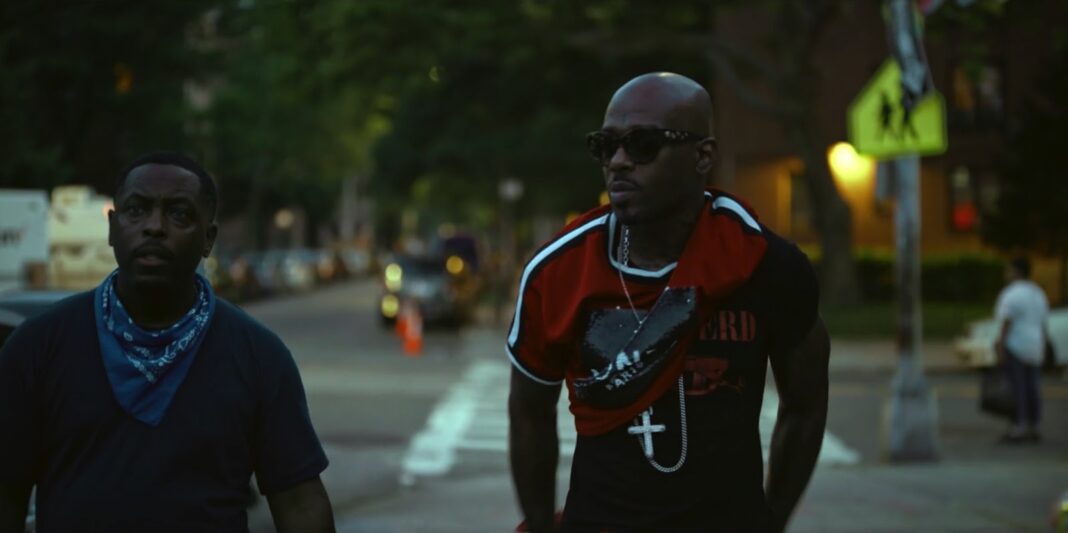Despite popular belief that slavery and racism were abolished after the passing of the 13th Amendment to the U.S. Constitution, it never went away; it evolved. The COVID-19 pandemic has illuminated many things for many industries, but one common element that seems to remain is the now visible, systemic racism that has taken the lives of many:
The brutal murder of George Floyd, a 46-year-old Black man in Minnesota, by former Minnesota police officer, Derek Chauvin, who currently is on trial for his murder. You can watch the ongoing trial of MN v. Derek Chauvin on Law & Crime Network, as well as other major news networks.
Ahmaud Arbery, a 25-year-old Black man shot to death by two white men in Georgia, and Breonna Taylor, a 26-year-old Black woman, who while sleeping in her apartment with her boyfriend, was murdered as a result of law enforcement firing 20 times into the apartment after entering the premises without a warrant, scaring Taylor and Walker into thinking their home was being broken into, requiring a need to defend themselves.
Research has shown that Black, Native American, and Latino individuals are more likely to die at the hands of law enforcement than their white counterparts, and 1 in every 1,000 Black men and boys can expect to be killed by police. People of color are also more likely to be stopped, searched, given citations, and arrested by police even while exhibiting similar behavior to their white counterparts.
Take another look at that. How are those statistics? Why is that okay?
And what did all 3 of these individuals have in common? They were unarmed African-Americans, who horrifically lost their lives, at the hands of law enforcement, for no reason other than they were at the hands of authorities. Leading to civil unrest and the birth of the Black Lives Matter movement, the blatant signs of systemic bias and racism have come to light, forcing each and every one of us to re-examine every action we take, every word we utter, every relationship we have, and the very character we hold ourselves out to be.
With SXSW, Sundance Film Festival, and Cannes Festival now behind us, bringing together works of art that are designed to spark creativity and innovation, the Independent Filmmaker Day (IFD) is another such festival, which hosts four large events each year, traditionally taking place in France (the day before Cannes), in Utah (the day before Sundance), Toronto (the day before TIFF) and Miami (During Art Basel).
IFD’s most recent event featured beloved industry actors, Richard Dreyfuss, Tony Shalhoub (MONK, Marvelous Mrs. Maisel), Jason Alexander (Seinfeld), and others. Yet, perhaps what was even more heartwarming, was the decision to give the IFD award to Ice-T, Taheim Bryan, and Anthony ‘Treach’ Criss for their film Equal Standard.
Of course, the COVID-19 pandemic forced IFD to migrate its recent events to a virtual stage, making the traction behind Equal Standard that much more natural and impactful. The newest addition to the IFD event series, is the IFD award ceremony, which helps to further promote a message of diversity, particularly around educating viewers about the realities of systemic racism. This year’s IFD Award went to Equal Standard, starring Ice-T and Criss, which couldn’t have come at a more necessary time in American history.
“The feature, which focuses on the race relations between African Americans and the police, comes at a pivotal time in American history,” IFD producer Eric Vollweiler said.
Mutiny Pictures recently secured North American distribution rights to Equal Standard, according to Deadline, which will get a limited theatrical release beginning May 7. Law & Order: SVU star, Ice-T stars in the film.
For Bryan, “Equal Standard” was his first feature film that he self-wrote and co-directed, but it definitely came at a cost: his health.
In an interview with Daily Bruin, Bryan revealed that in bringing this film together, it was quite challenging, causing him to be hospitalized from the stress. But for Bryan, it had nothing to do with the budget or the size of the crew involved, and everything to do with the message being communicated through the lens.
True Hollywood Talk spoke with Bryan more in-depth about the process that went into putting this film together. In asking the producer why now, more than ever, is essential for this vision to be seen by everyone, Bryan countered saying that the more accurate question, isn’t about the “why now”, but rather looking back at our history of the hundreds of years of systemic racism that has always been around, and that “Equal Standard” would have been just as relevant years ago, as it is now, but due to the COVID-19 pandemic, we are starting to see it more.
“Systemic racism and racism have been here for hundreds of years, you know what I mean? And I can circle back and go back to technology, where technology made it where people are held more accountable, because they’re being recorded,” Bryan explained. “So now, you see it as opposed to hearing it. Equal Standard would have been just as relevant years ago, as it is today. It just so happened that during the pandemic, there weren’t that many distractions that could take you away from the current events and things that have happened. Now, we are starting to see how more prevalent it is, because our phones are being pulled out.”
Bryan went on to explain that the film was actually written out of pain he experienced from within the industry itself, recalling a particular project he attempted to push forward back in 1988 called “South Side.”
“‘Equal Standard’ was developed and written out of pain, not just from systemic racism, but the industry. I was pushing for another project called ‘South Side’, that I wrote on an episodic basis in 1988, and they wanted to take my credentials. They didn’t want to let me have my credentials. They wanted me to basically give the project away, and I refused to do that. I told them I did all this work; I secured all this talent. Why should I have to relinquish myself from those credentials? I could understand if they had said that I would have to at least share them just to get into the game, and I would have been a little more receptive to that, rather than ‘hey, we are going to snatch the red carpet from underneath completely, and we don’t care about all the work you’ve done. So, I wound up taking the project back, and you know what, I’ll just remove myself from this right here, and then come home, and dove into ‘Equal Standard.’
When it comes to titles, Bryan almost always comes up with titles first. “Once I come up with a title, then I can really write around it,” he said. “What made me write ‘Equal Standard’ the way it is, because if you watched it, I actually exemplified the formula of a crash/traffic, where you have multiple stories in there, because when you’re dealing with politics, racism, or religion, there is no one way you have to come up with it, but there is one way you have to deal with it.”
And that, according to the film’s producer, is “delicately.”
“You have to be receptive to the teachings of the people that are actually living and enforcing racism, to the ones that are on the opposite end of what you would call that ‘whip’. I came in on different tones, where you can be more receptive and understanding to where we’re coming from on the opposite end, because something that has been working for people, they’ll question why they should change it. But, you’ve been damaging another cultural background based on their skin color, and not the content, which you can’t get rid of. You can’t just say, ‘well, we’re just going to annihilate them, and they’re going to be gone.’ We’re always going to exist and co-exist, and it’s best to just respect each other. We aren’t asking you to love one another, but at least respect the individual or your counterpart that you sit across from. That’s what ‘Equal Standard really exemplifies, as well as to change the narrative on a lot of the other films coming out that were finger pointing; because once you start finger pointing or when you come up with a certain title, you can automatically lose or deter an audience from you that would have possibly been willing to speak out.”
For more information on “Equal Standard,” please visit https://www.equalstandardmovie.com/.








